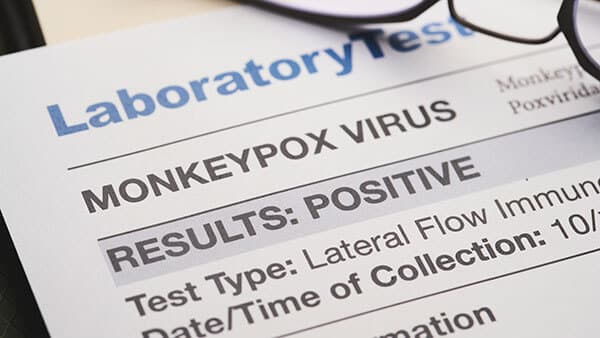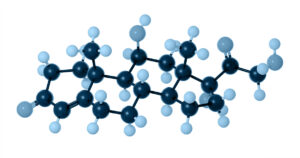As of August 10, the Center for Disease Control (CDC) reported that over 10,000 cases of monkeypox have been identified in the United States (US). The Biden administration officially declared monkeypox a Public Health Emergency (PHE) in the US on August 4th, following several states that declared their own state of emergency (New York, California, and Illinois) and the declaration of monkeypox as a Public Health Emergency of International Concern (PHEIC) by the World Health Organization (WHO) on July 23rd.
What a PHE Designation Enables
The PHE designation enables the United States Department of Health and Human Services (HHS) secretary to release additional resources for the purpose of responding to a public health crisis. A PHE allows the federal government to make funding (via grants and/or contracts) available to respond to the emergency, modify certain Medicare, Medicaid, and other health program rules to make items and services more readily available, and appoint temporary personnel to deal directly with the emergency. It also allows the federal government to focus efforts on significantly scaling the production and availability of vaccines and the expansion of testing capacity (this includes coordination with state and local authorities).
Current Federal Government Response to the Monkeypox Outbreak
Prior to the PHE status, HHS had already taken several actions to combat the outbreak, including
- Working with the FDA and CDC to increase testing capacity (6,000 tests per week at the beginning of the outbreak to up to 80,000 tests per week).
- Working with the FDA and CDC to clarify and simplify the process for accessing TPOXX (tecovirimat), streamline post-administration monitoring and data requirements, and make clear to providers that the documentation necessary to access TPOXX can be completed after it is prescribed to patients.
- Delivering vaccines to states and jurisdictions in need. Simultaneously it took decisive steps to increase future vaccine supply. HHS has made 374,000 vaccine doses available for ordering and delivered over 191,000 of those doses to state and city health departments for free. When factoring in doses already delivered to the Strategic National Stockpile (SNS), those pending at the supplier, and replacement doses, the federal government will have access to more than 6.9 million doses by mid-2023.
Preventing the Future Spread of Monkeypox
The federal government has been able to provide and secure vaccines and treatments that offer protection against monkeypox because of strategic investments that have been made by the HHS Office of the Assistant Secretary for Preparedness and Response (ASPR), through the Biomedical Advance Research and Development Authority (BARDA) and the SNS. These investments were made prior to the current monkeypox outbreak to prepare for a potential smallpox incident. The investments include BARDA support for the development of the JYNNEOS vaccine. Since the declaration of the PHE was only made last Thursday, it is to be seen what amount/types of funding may be released and what additional actions will be taken to combat the spread of the monkeypox outbreak in the US.
Currently, Bavarian Nordic’s JYNNEOS is the only FDA-licensed vaccine in the United States that is approved (for use in individuals 18 years of age and older who are determined to be at high risk for smallpox of monkeypox) for the prevention of monkeypox disease (Key Facts About Monkeypox Vaccine | FDA). Bavarian Nordic is the only producer of JYNNEOS. While there is another vaccine, AMCAM2000, that may be used against monkeypox under FDA’s Expanded Access Investigational New Drug (IND) mechanism, additional care of the vaccine site post-vaccination and potentially serious side effects (i.e., myocarditis/pericarditis, swelling of the brain) does not make it an ideal solution to the outbreak (Key Facts About Monkeypox Vaccine | FDA).
On August 9, 2022 the FDA authorized the emergency use of JYNNEOS vaccine to allow for an alternative administration of the vaccine, which will increase the total number of doses available for use by up to five-fold. This authorization means that JYNNEOS can be administered to adults in smaller doses intradermally (into the skin), as opposed to larger doses subcutaneously (into the layers that lie underneath the skin). The use of this method of administration does not extend to pediatric populations (under 18). The emergency use authorization (EUA) does allow for greater access to the vaccine, but Bavarian Nordic remains the sole producer of JYNNEOS. Depending on the potential rise in monkeypox cases in the coming months, it is still unclear whether the doses that are available to the US will be enough to slow down or sufficiently combat the outbreak in the US.
The COVID-19 pandemic prompted the US to invest significantly in domestic vaccine manufacturing capacity and vaccine supply chain resilience to ensure that the country is better equipped for emerging public health crises. However, many of the projects that were funded in response to the COVID-19 pandemic are still underway and will not add much vaccine manufacturing capacity in the near term. With the PHE declaration, it is possible that the US may see additional funds allocated specifically to responding to the monkeypox outbreak. This could include funds allocated to increasing monkeypox vaccine production, possibly facilitating partnerships with Bavarian Nordic and US-based manufacturers, or additional funds to research and explore additional treatment and/or prevention options.
“Monkeypox continues to demonstrate the need for pandemic preparedness, not just pandemic response,” explained Eric Jia-Sobota, National Leader of EverGlade Consulting. “We may have missed the window for effective containment based solely on the response and availability of vaccines,” he concluded.







